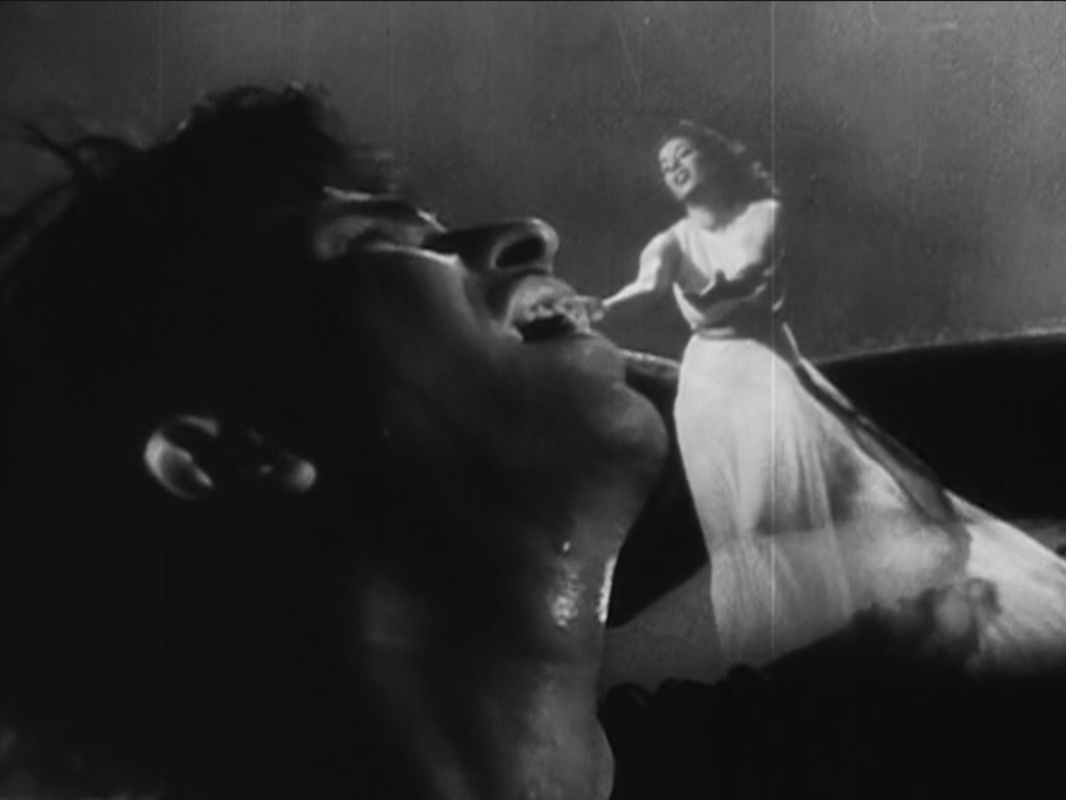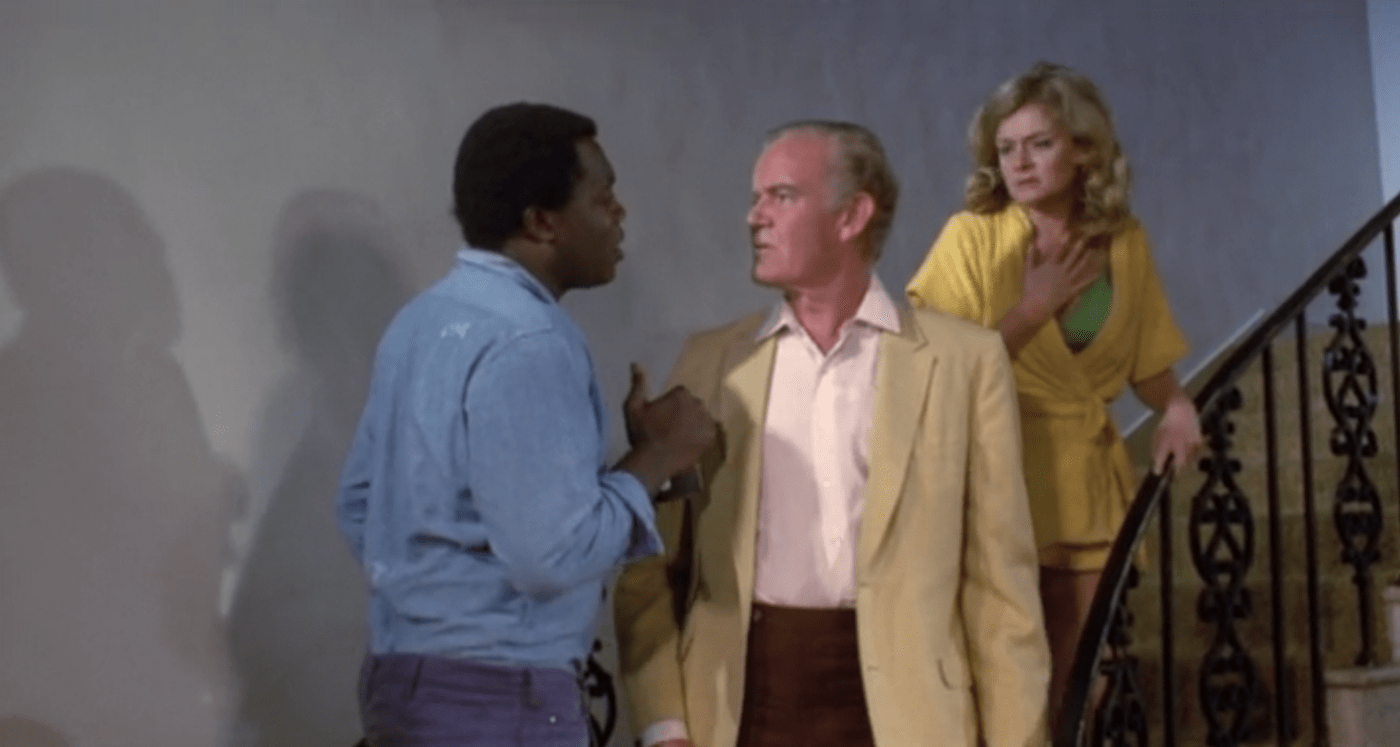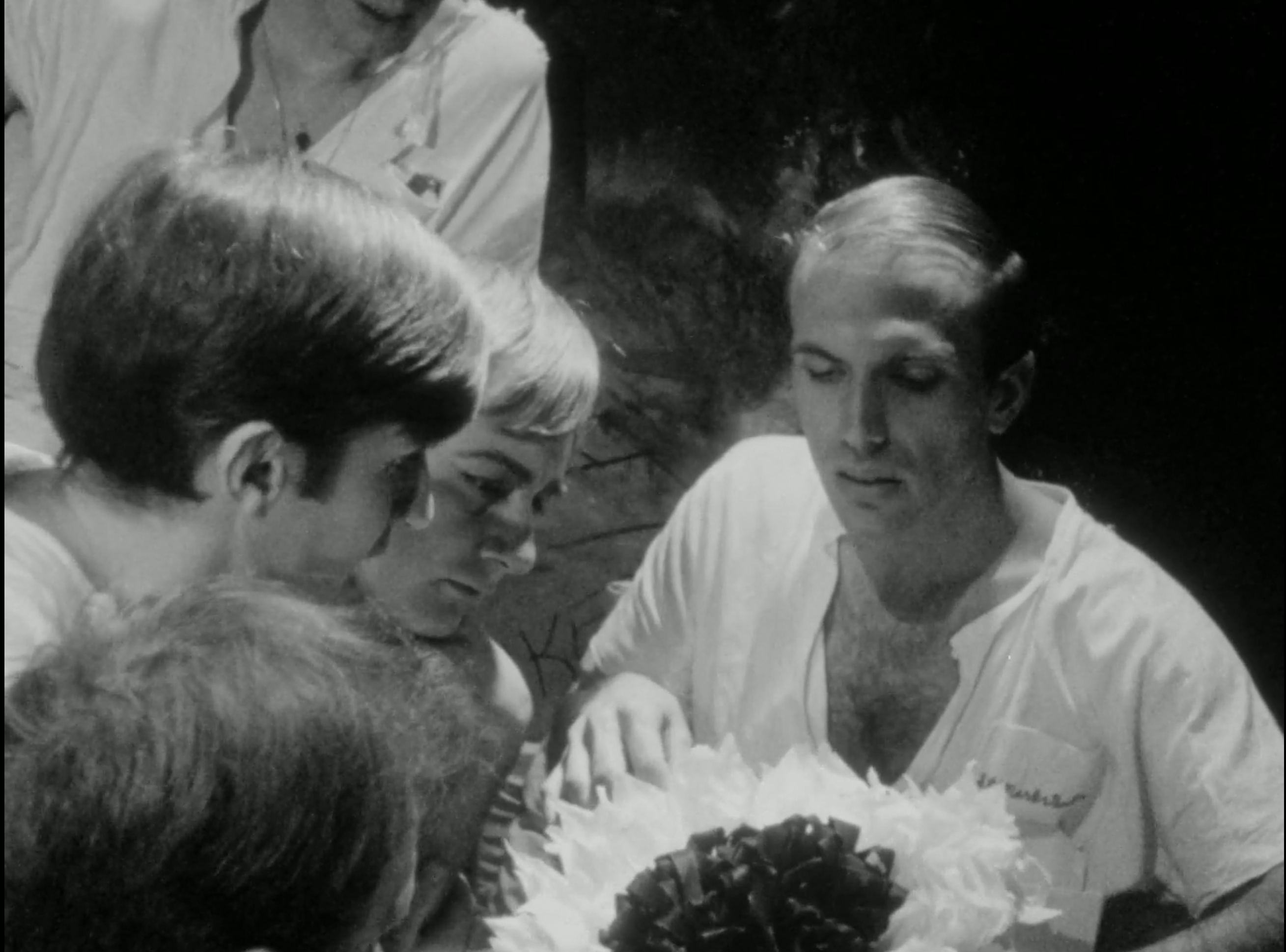
Carlos Reygadas’s 2002 movie Japón uses the three core ingredients from Ingmar Bergman’s cookbook, death, sex, and god. Death, and its attendant fear, provides the engine that drives everything. Sex is our attempt to distract ourselves and represents our attachment to the materiality of the mortal world. God is a doomed effort at assuaging our fear of death by praying to an absent and neglectful parent figure who requires a kind of hope and optimism many cannot muster. Both Reygadas and Bergman cover these three intertwined themes in similar ways but Japón is visually distinctive.
Everything about the framing and the camera movement is unusual. Its shot in 16mm Cinemascope, so the aspect ratio is very wide, 2.88:1. This suits the rocky and dramatic vistas of the remote corner of Mexico where the film takes place. The views are beautiful, but the framing often cuts out the sky or is dominated by a tree blocking our view or the back of someone’s head. It’s carefully composed but awkward in an almost clumsy way. Much of the film is shot without a tripod, even the wide panoramic shots. The protagonist, whose name we never learn, walks with a cane and has a very pronounced limp all of which is accentuated by the camera movement. The camera often depicts the protagonist’s point of view although on occasion the camera will pan slowly around and he will unexpectedly appear in his own line of vision.
The film is grainy and the sun gives everything a bleached high contrast appearance. There is a continuous push and pull between scenic beauty and coarse, gritty immediacy. The constant sound of crunching gravel and rolling rubble are joined by the wind and farm animals to create an earthy atmosphere that ties the film down to something earthly even if it is addressing existential issues.
The protagonist is a defeated seeker whose last act is to find a peaceful place to kill himself. In this obscure canyon in Mexico, he takes refuge in an old woman’s barn. Her name Ascen and she has the matter-of-fact air of someone who has been through a difficult life and has found a way to weather it with an even keel. She is not sunny or happy by any means but she does not morn nor celebrate the events of her life.

Reygadas used untrained local residents as actors and the role of Ascen is played by Magdalena Flores. Her face carries a history and character that was gained by years of farm work in the sun. It is perhaps her zen-like equanimity that the film is named after.
In reviews Japón is often seen as being about redemption or renewal. Our protagonist begins the film ready to kill himself but finds purpose in the calm beauty of Ascen and the valley. Maybe I have seen too many Bergman films, but the renewals he experiences appear to be hollow. His rebirth seems more like short-sighted lust than a discovery of intimacy. The film is richer if it is ambivalent about life, love, and death. There is nothing wrong with a redemptive message but redemption can bring an overly tidy and ordered purpose to a film, that overshadows issues that are best left open. When left open we can ponder them and turn the events of the film around in our mind.
Reygadas is self-taught. His mode of storytelling and his visual vocabulary are idiosyncratic and interesting. It shows an awareness of filmmakers like Tarkovsky, Wenders, and maybe Leone too but it has a pace and a feel it’s own. The content is compelling but basic, it’s that craft that lingers after the film is over.


If you enjoyed this article click here for more
www.filmofileshideout.com/archives/la-cienaga-is-masterful



